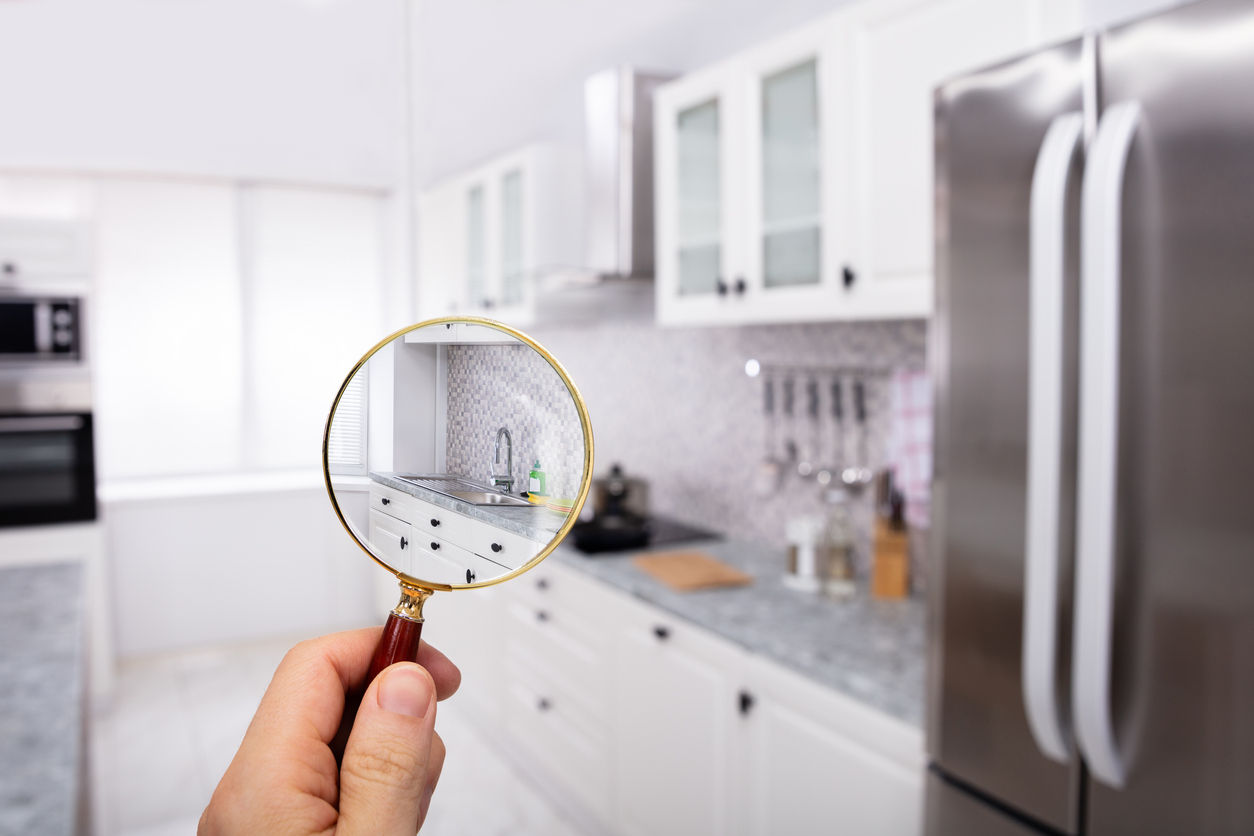- Government-Backed Loan Programs
- Federal Housing Administration (FHA) Loans
- Veterans Benefits Administration (VA) Loans
- Department of Agriculture (USDA) Loans
- Grants and Assistance Programs
- Alternative Financing Options
- How to Prepare for Homeownership with a Small Income
- Buying a House With Low Income is Possible
How to Buy a House with Low Income and No Down Payment
For many Americans, buying a house seems like a dream that is out of their reach if they don’t have a lot of money saved or have a high income level.
Most people under the age of 35 have a median savings of $5,400, which is usually set aside for their emergency fund. Fortunately, you can still buy a house if you are working on your down payment and want to invest in your future.
This guide will address how to buy a house with low income and no down payment while providing multiple options to consider.
There are multiple federal and state programs you can consider if you are looking for a house. Some lenders also specifically work with low-income buyers. Learn about your options and create a plan of action. Follow these steps to become a homeowner while still living within your means.
Government-Backed Loan Programs
The first step in your search is to explore your various loan options. There are multiple programs designed to support buyers who have small down payments or don’t want to clear out their savings to buy a house.
There’s a common misconception that you need to save 20% of the home’s value for a down payment. In reality, most people only put 6% to 7% down. Depending on the loan you get, you might only need to put 3.5% down, making purchasing a home much more affordable.
If the median home price in your area is $300,000 then a 6% down payment is $18,000. If you put down 3.5% as part of an FHA loan, you only need $10,500.
Know that low down payments come with drawbacks. The less you put down, the higher your mortgage will be. Plus, if your down payment is less than 20% of the home’s value, you will need to pay private mortgage insurance (PMI) as part of your monthly payment. Work with your Realtor to make sure this falls within your budget.
Here are a few programs to look into as you search for loans that offer small down payment options. See which ones you qualify for.
Federal Housing Administration (FHA) Loans
If you are ready to buy your first home, look into FHA loans. These loans are designed to help people with small down payments become homeowners. They have low closing costs and easy credit for qualifying. You will work with a traditional lender to receive an FHA loan and they will broker the mortgage.
If you have a credit score above 580, you will only need to contribute 3.5% of the home’s value for a down payment. If your credit score is above 500 but below 579, you will need to contribute 10% of the home’s purchase price.
Look at your credit score and decide if you want to improve it over the next year before buying a house or if you can secure the loan with a 10% down payment. One of the benefits of opting for a 10% down payment is that you save on mortgage insurance in the long run.
Veterans Benefits Administration (VA) Loans
If you are an active service member or veteran who qualifies for benefits, you may be able to apply for a VA loan. These loans often come with no down payment requirements, which is ideal for veterans without a lot of savings. There are also limited closing costs and no private mortgage insurance.
The main difference between VA loans and FHA loans (other than the military qualifications) is that you can use this benefit multiple times. You can use VA loans whenever you sell your house and want to buy other ones in different parts of the country.
The VA provides several resources to help you apply for these loans so you can easily navigate the process.
Department of Agriculture (USDA) Loans
USDA loans are designed to help buyers procure housing in rural areas. These loans are meant for buying primary residences, so they aren’t available for people looking for investment properties. It’s possible to secure 100% financing for the property through these loans.
You can see which areas qualify for USDA loans by checking the online eligibility map. Moving outside of packed suburban and urban areas allows you to get the financing you need and enjoy lower home prices. For example, the Nashville median home price was $432,000 in 2024.
However, the median home price in Tennessee is just above $311,000. Consider looking into smaller communities that offer affordable housing while still providing easy access to your favorite metro areas.
Grants and Assistance Programs
Along with FHA loans and other conventional loans aimed at low-income buyers, there are additional grants and programs that could help you secure housing. Here are a few places to start your search if you want to find a loan program that meets your needs.
HomeReady by Fannie Mae
HomeReady is a program that supports very low-income borrowers. It offers loans to buyers for down payments as low as 3% and is known for not having stringent credit score and income policies.
Recently, Fannie Mae announced it was offering a temporary $2,500 credit to further help buyers with their down payments. Ask about this program if you think you could benefit from it.
Home Possible by Freddie Mac
Home Possible is a similar program that offers mortgages for buyers who have a 3% down payment or less. The example they use is helping recent college graduates who have minimal income history and no credit history. These borrowers are still trustworthy even though they don’t have a lot of financial experience yet.
Learn more about this program and who can benefit from it.
Employer Assisted Housing (EAH)
Some companies offer support to employees who want to become homeowners. A loan is given to an employee at the closing appointment and is either paid back over time or forgiven if the employee stays with the company for a certain period.
These programs incentivize employees to stay with companies and offer banks the stability of working with a large corporation to close the loan. The risk to borrowers is that they might feel like they need to stay with the organization even if they don’t want to because of the loan.
Employer-assisted housing is more common with major employers. See if your company participates in any similar programs.
Economic Development Grants
Many towns across the United States are trying to convince people to move to the area. Not only do many of these places qualify for USDA loans, but the economic development offices and chambers of commerce might offer relocation grants.
These grants can help cover moving costs or provide a stipend for your closing costs. The towns benefit by growing their population and proving that their region is a desirable place to live.
If you are considering moving to a more rural area, check for economic development grants that you can apply for.
The Down Payment Toward Equity Act
This payment assistance loan program isn’t currently available but has been proposed by the Biden Administration and is currently working its way through Congress. The program would create a grant program that helps first-time time homebuyers with their down payments.
Grantees would receive up to $25,000 toward the purchase of their homes. This would help people without a lot of money saved buy homes and start growing their wealth.
Keep tracking this bill to see if it passes. Demand will likely be high for the grants so you don’t want to miss out.
Alternative Financing Options
If you don’t qualify for any of the above programs, you can still look into alternative financing options beyond conventional loans. These options might take a little creativity to find, but they could be just what you need to buy a house with low income.
Rent-to-Own Agreements
A rent-to-own agreement occurs when you rent a house for a year or two and have an agreement with the owner that you will purchase the property once that period is up. This is a great option if you want to get into a competitive neighborhood but don’t have a large down payment.
With a rent-to-own agreement, the owner will set aside a portion of your rent payment as part of your down payment. For example, you might pay $1,200 in rent and pay the landlord $1,500 to set aside $300 each month. At the end of two years, you would have paid $7,200 toward the house.
Make sure you work with a trusted real estate agent and attorney to draft a rent-to-own agreement. These documents can be difficult to create in a way that protects both the buyer and seller.
Land Contracts
A land contract is an agreement between a buyer and seller to purchase a property. The buyer makes payments to the seller until the land, house, or condo is paid off. The agreement is between two parties instead of through a bank.
Buyers benefit from land contracts when they cannot secure housing through conventional loans. This could be a way to buy a house with low income that doesn’t require mortgage insurance.
The homeowner doesn’t get the full value for the property upon selling, but they will get paid for the property over time. The buyer makes payments to the seller. The homeowner might benefit from collecting interest on the sale and they will reach additional buyers through this method. This could also be a good option for parents and relatives selling properties to their kids.
Housing Cooperatives
Explore your area to see if there are any housing cooperatives that allow you to buy shares in building ownership. With this model, you don’t buy a single unit (like a house or condo) but instead buy into the cooperative. Residents pay collectively to cover maintenance costs while the cooperative works to keep costs low.
This could be a good option if you can meet the down payment and minimum credit score requirements and want to get into a home quickly. You can grow your wealth by paying off your co-op shares and eventually sell them to move into a home.
How to Prepare for Homeownership with a Small Income
While down payment assistance is a significant part of buying a home, low-income borrowers also need to calculate their monthly mortgage payments. Mortgage lenders won’t approve loans if your payments exceed certain thresholds because they are considered too risky. Know what size monthly payments you can take on before you start looking at houses and applying for loans.
The first step is to calculate your debt-to-income ratio (DTI). This is the debts you owe monthly versus your gross monthly income (before taxes). Most mortgage lenders set a 36% threshold for DTI when calculating monthly payments.
For example, if you earn $3,000 per month ($36,000 per year) then your maximum DTI would be $1,080. If you have no other debts, this is the mortgage you will be approved for. However, if you have a car payment of $280 per month, then your maximum loan amount would be closer to $800.
Mortgage payments include the principal payment on the loan, interest, fees, closing costs, property taxes, and homeowners insurance, which add to your costs. The loan your lender approves you for and the monthly payment that comes with it will need to account for all of these costs. This is why it helps to work with a financial advisor or Realtor to learn how much house you can afford before you start to look at homes.
Here are a few tips to buy a house with low income by saving for a larger down payment and improving your loan terms.
Improve Creditworthiness
Check your credit score and see if you need to improve it. Many lenders have a minimum credit score to qualify for loans, but you will want to exceed this amount to get better loan offers. Stopping at the minimum credit score could result in higher interest rates, which makes your loan more expensive. You will pay more to the bank over time instead of paying off your home purchase.
Here are a few ways to improve your credit score while preparing to buy a house:
- Aggressively pay down your debt. Look for ways to cut costs and put as much money as you can into your debts.
- Consolidate your debt. See if you can move your debt into one or two monthly payments for easier management.
- Ask to increase your credit. Request higher limits from your credit card providers so your utilization goes down. Your credit utilization is the percentage of credit used versus the credit offered.
- Never miss a payment. Even if you can only make small payments, prove that you pay your debt consistently. This can build a positive credit history.
It takes time to increase your credit score, but small healthy habits can have a big impact. You might be surprised how your interest rate offers change if you commit to building good credit for a year before you buy.
Budget and Save
While shopping for favorable interest rates and exploring various programs and grants can help you buy a house, one of the best ways to make sure your payments are affordable is to save for a larger down payment. Higher down payments result in lower monthly payments and potentially lower interest rates – allowing you to save even more. If you know you want to buy a house in the next few years, take steps not to set a budget and save.
- Invest in a high-yield savings account. These accounts can help you grow your savings and get the most out of your budgeting efforts. Look into a HYSA with around a 4% interest rate in your area.
- Set goals to put money aside. Even if you can only set aside $100 each month, you can grow your savings over a few years. Create a fund that is untouchable and meant for a down payment.
- Eliminate unnecessary spending. Cut back on eating out, subscription services, and any luxuries for a year or two. Any savings can go toward your down payment.
- Look for opportunities to increase your income. This could range from taking on a side hustle to applying to higher-paying jobs. It will also lower your debt-to-income ratio.
There are dozens of ways to save money if you know where to look. A lot of small choices can add up and make your home purchase more affordable.
Find a Trusted Real Estate Agent
Buying a house isn’t as simple as touring properties and finding your ideal neighborhood. There are a lot of financial choices involved, from the size of your down payment to the mortgage insurance that comes with your loan. Fortunately, you don’t need to be an expert in real estate to navigate the entire process. This is where your real estate agent comes in.
A quality Realtor will help you find homes in good condition that are also near your desired area. They will respect your budget and help you understand the mortgage process. Experienced Realtors will go over everything from credit scores and closing costs with you so you feel comfortable moving forward.
To find an agent, try our FastExpert. You can learn about different Realtors and find ones that specialize in helping low-income borrowers. You can also find Realtors who understand how overwhelming it can be to buy a house for the first time.
Your Realtor is meant to be your support system throughout the buying process. Find an agent you can trust.
Buying a House With Low Income is Possible
You can live your homeownership dreams even if you don’t have a large down payment or even a high credit score. There are plenty of loan program options for low-income borrowers. Learn what mortgages you qualify for and see if there are grants and services that can help. With the right tools, you can own a home.
Start by looking for Realtors on FastExpert. The right agent can help you discover options that streamline the purchase process.




